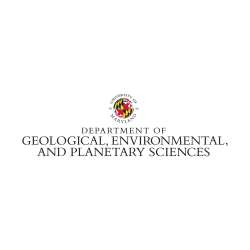Four Named 2020 Distinguished University Professors in UMD's College of Computer, Mathematical, and Natural Sciences
Bill Fagan, James Farquhar, Dinesh Manocha and Aravind Srinivasan have been named 2020 Distinguished University Professors at the University of Maryland. The title of Distinguished University Professor is the highest academic honor bestowed by the university.
Fagan, Farquhar, Manocha and Srinivasan join nearly 50 colleagues in the College of Computer, Mathematical, and Natural Sciences who have been named Distinguished University Professor since 1980. Distinguished University Professors are faculty members who have been recognized nationally and internationally for the importance of their scholarly achievements. UMD’s president, along with a committee composed of the provost and seven faculty members—including several Distinguished University Professors—from diverse disciplines select the honorees each year.
Fagan joined UMD’s Department of Biology in 2002 as an associate professor, and he has served as chair of the department since 2013.
Fagan is an ecologist known for his work advancing fundamental theory and often coupling that with creative empirical and informatics research. He is a leader in the field of spatial ecology and has made major contributions to better understand ecological boundaries, fragmentation and animal movement. Fagan has published more than 230 peer-reviewed journal articles, and he has supervised 5 master’s students, 21 Ph.D. students and more than 32 postdoctoral researchers.
He also helped innovate UMD’s undergraduate curriculum, with support from the National Science Foundation, by infusing mathematics into first-year biology classes. He also secured a U.S. Department of Education Graduate Assistance in Areas of National Need award for the department that funded graduate fellowships for students studying mathematics in biology.
Fagan is a fellow of the Ecological Society of America (ESA) and the American Association for the Advancement of Science (AAAS). He has received numerous awards and honors, including a Guggenheim Fellowship; the Presidential Award from the American Society of Naturalists; the UMD College of Computer, Mathematical, and Natural Sciences (CMNS) Board of Visitors Distinguished Faculty Award; and a UMD Distinguished Scholar-Teacher award.
In addition to his leadership roles in the department, Fagan has also served at UMD’s National Socio-Environmental Synthesis Center (SESYNC) as director for research innovation (2011-13), as a Distinguished Scholar-Lecturer (2015), and as a Research Innovation Scholar (2013-present). He earned his bachelor’s degree in biology from the University of Delaware and his Ph.D. in zoology from the University of Washington.
Farquhar joined UMD’s Department of Geology and Earth System Science Interdisciplinary Center (ESSIC) in 2001 as an assistant professor.
Farquhar is a scientific leader in sulfur isotope geochemistry, with publications that address geochemical processes on Earth and elsewhere in the solar system, spanning a variety of eras from the modern to the ancient. He is best known for discovering the geochemical signal that traces the long-term history of atmospheric oxygen. More recently, Farquhar and his collaborators found that Earth’s early atmosphere spent about a million years filled with a methane-rich haze. They also developed a new, more accurate system to study the history of large volcanic eruptions over the past 2,600 years.
Farquhar is a member of the National Academy of Sciences and a fellow of the Geochemical Society/European Association of Geochemistry and the American Geophysical Union. He has received numerous awards and honors, including a Guggenheim Fellowship, the Fulbright-Tocqueville Distinguished Chair Award from the Franco-American Fulbright Commission, the Samuel Epstein Medal Science Innovation Award from the European Association of Geochemistry, and the F.W. Clarke Award from the Geochemical Society.
He received his bachelor’s degree from Washington and Lee University, his master’s degree from the University of Chicago, and his Ph.D. in earth and atmospheric sciences from the University of Alberta, in Canada.
Manocha joined UMD in 2018 as the Paul Chrisman Iribe Professor of Computer Science. He also holds joint appointments in the Department of Electrical and Computer Engineering and the University of Maryland Institute for Advanced Computer Studies.
Manocha’s research focuses on geometric and scientific algorithms with applications to computer graphics, robotics and virtual reality. As co-leader of the UMD GAMMA research group, Manocha has developed many widely used software systems related to geometric computing, physically based modeling, virtual reality, and robotics that successfully transitioned to industry.
Audio simulation technologies developed by the group have been licensed by leading commercial vendors and used in game engines and virtual reality systems. Manocha also co-founded Impulsonic, a developer of physics-based audio simulation technologies, which was acquired by the Valve Corporation in 2016. He has published 550 conference and journal papers, received 16 best paper or test-of-time awards, and supervised 54 Ph.D. students.
Manocha was elected fellow of the Association for Computing Machinery (ACM), American Association for the Advancement of Science (AAAS), Association for the Advancement of Artificial Intelligence (AAAI), and Institute of Electrical and Electronics Engineers (IEEE). He was also elected to the ACM SIGGRAPH Academy and received the Pierre Bézier Award from the Solid Modeling Association, Distinguished Career in Computer Science award from the Washington Academy of Sciences and the Distinguished Alumni Award from the Indian Institute of Technology, Delhi. Other major awards include a National Science Foundation CAREER Award, Office of Naval Research Young Investigator Award, Sloan Fellowship, IBM Fellowship, SIGMOD IndySort Winner, Honda Research Award, and UNC Hettleman Prize.
He earned his B. Tech. in computer science and engineering from the Indian Institute of Technology, Delhi, and his Ph.D. in computer science from the University of California, Berkeley.
Srinivasan joined UMD’s Department of Computer Science in 2001 as an associate professor. He holds a joint appointment in the University of Maryland Institute for Advanced Computer Studies.
Srinivasan’s research focuses on randomized algorithms and probabilistic methods, with applications to machine learning, artificial intelligence, cloud computing, e-commerce, social networks and public health. He has published nearly 200 papers in peer-reviewed journals and refereed conferences, and he has advised 17 graduate students.
Recently, he began leading the computational foundations part of a new National Science Foundation Expeditions project to explore trends in globalization, antimicrobial resistance, urbanization and ecological pressures—factors that have converged to increase the risk of global pandemics like COVID-19. Key to this work is the development of new machine learning algorithms that can interpret large amounts of data from multiple sources over multiple networks.
He is a fellow of the American Association for the Advancement of Science (AAAS), American Mathematical Society (AMS), Association for Computing Machinery (ACM), European Association for Theoretical Computer Science (EATCS), Institute of Electrical and Electronics Engineers (IEEE), and Society for Industrial and Applied Mathematics (SIAM). He is also an elected member of Academia Europaea. Srinivasan also serves as editor-in-chief for ACM Transactions on Algorithms. He received his B. Tech. from the Indian Institute of Technology, Madras, and his master’s and Ph.D. from Cornell University—all in computer science.
###
Matthew Wright and Kara Stamets contributed to this article.











